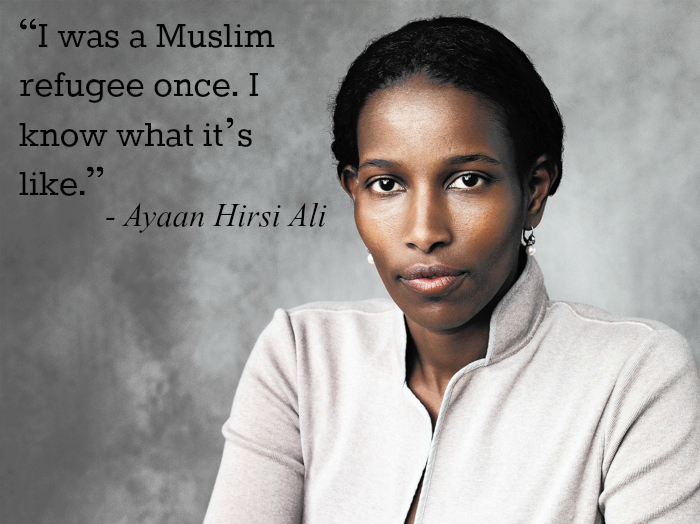Kerby Anderson
Ayaan Hirsi Ali begins her commentary with these words: “I was a Muslim refugee once. I know what it’s like.” She was en route to Canada to consummate a marriage arranged against her will by her father. At the Frankfurt Airport, she fled to the Netherlands. There she learned Dutch and received a master’s degree in political science before coming to America.
She has worked as an interpreter for abused Muslim women and understands the Muslim refugee experience. In the course of working with Muslim communities, she has found four different types of Muslim immigrant: adapters, menaces, coasters, and fanatics.
“Many Muslim immigrants have adapted over time by adopting the core values of Western democracies.” These Muslims have become great U.S. citizens and are the type of people we want to welcome to our country.
The second group are mostly young men, who she says are menaces in their homes and outside in public. They have been subjected to domestic violence and go on to commit it themselves.
Coasters are a third group of Muslim immigrants. They usually have little or no formal education and thankfully accept welfare and live off it. They also invite their families from abroad to join them on the welfare rolls.
“Finally, there are the fanatics—those use the freedom of the countries that gave them sanctuary to spread an uncompromising practice of Islam.” These immigrants are certainly the group we want to keep out of America.
Her analysis of Muslim immigrants is necessary for our discussion of immigration. We just cannot assume that all Muslim immigrants will perfectly adapt to the American culture and adopt western values. Nor should we assume that all Muslims are fanatics. We need to find a way to welcome adapters but also exclude those who won’t contribute to this country.
 Listen Online
Listen Online Watch Online
Watch Online Find a Station in Your Area
Find a Station in Your Area










 Listen Now
Listen Now Watch Online
Watch Online
